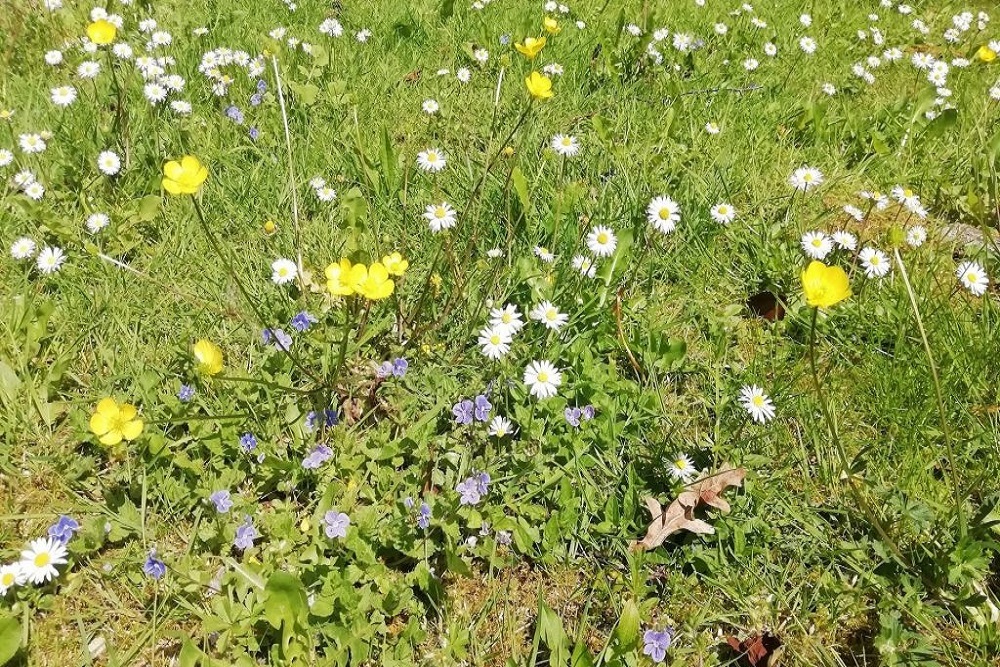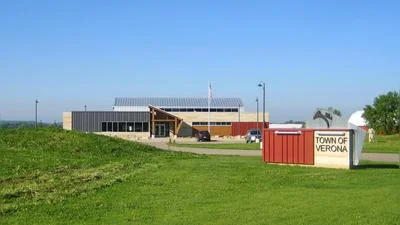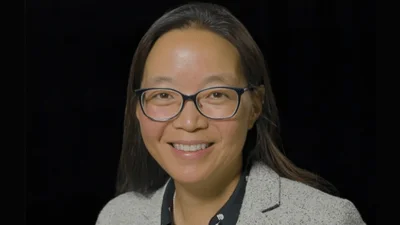Monona City - WI issued the following announcement on June 1.
Lots of Monona residents supported spring pollinators by participating in No Mow May this year, and there are ways to keep it up year round! See the tips below for ideas on how to keep your yard healthy and pollinator friendly.
Mow tall
One of the easiest things you can do all year round is to simply keep your grass a bit on the tall side. And whenever you do cut, make sure you do not remove more than 30% of the total grass length. That might be difficult after several weeks of No Mow May, just try your best. Aim not to restore your grass to what it would have been had you mown all through May, but to slowly transition into a more sustainable ecosystem.
Grow strong roots
Letting your lawn grow a little taller allows for more food to be produced in the plant which can create strong roots. Strong roots lessen the risk of erosion.
Lessen water needs and create a cooler environment
Taller grass blades create more shade! More shade results in a cooler ground surface which results in moisture being retained in the soil and won’t have to receive as much supplemental water.
Prevent weeds
Those who want to maintain a grass lawn can let their grass grow tall to germinate and create more grass seeds for a thicker lawn. A thicker lawn results in fewer weeds. You will be able to put away your herbicides by blocking out the weeds from the start with a taller, healthier, and thicker lawn
Cut costs
Not having to mow as frequently saves you money. You do not need to purchase gasoline as often and lessen the wear and tear on your lawnmower. Some people may save costs on watering or pest control.
Prevent pests
Cut down on pesticides and let nature take its course. Taller grass attracts beneficial insects like ladybugs and lacewings which protect your yard from pests that can wreak havoc in the summertime.
Support pollinators all season
By reducing chemical use on your lawn you’ll allow more biodiversity of plant life; clover, dandelions, and other colorful additions to our grass are all tremendously helpful to pollinators, necessary not only for our own gardens but also for farmers in the surrounding areas.
Increase biodiversity
When there are a variety of plants growing in your yard – clover, dandelions, and other colorful plants - all with a variety of leaf shapes and root lengths, more carbon is drawn out of the air through photosynthesis, captured by the plants, and pumped into the ground through their root systems. Soil also becomes soft and more porous, allowing it to hold the rain that falls on it. Some mono-culture lawns (grass only) are as compact as the rooftops of our homes, and rainwater bounces off them and into the streets, carrying with it a number of algae-producing and other harmful chemicals that flow directly into our waterways. When your lawn is able to accept more rain where it falls, it stays green, and your lakes stay blue.
Birdwatch from the comfort of your home
In addition to pollinators, more birds will also be attracted to your yard. Wild plants and seeds create food opportunities for native birds.
Use native plants
You could choose a different variety of native grass or plant native plant species. Indigenous plants were once a vital part of the ecosystem as they can be hardier and more drought-tolerant to have better success where you live.
Your lawn doesn’t have to be grass!
You could grow cut flowers such as zinnias or bee balm for both yourself and pollinators. Growing clover stays low to the ground and provides foraging resources. Lupine and coneflowers have beautiful flowers and deep roots that can control erosion on a hillside.
Not ready to take the leap in breaking from the norm?
Dedicate a patch of your lawn to leave long and/or growing plants other than grass, and watch the benefits in a smaller area!
Sources cited for this article:
https://www.spring-green.com/blog-4-reasons-why-you-should-keep/
https://www.insidetheyard.com/benefits-of-letting-grass-grow-long/
https://www.bhg.com/gardening/yard/lawn-care/no-mow-lawn/
https://www.kujo.com/blog/i-dont-zcut-my-grass
This list was compiled and shared by Department of Administration Green Team member Jolan Schilz. For questions, feel free to reach out to Alder Teresa Radermacher, current chair of the city’s Sustainability Committee.
Original source can be found here.






 Alerts Sign-up
Alerts Sign-up